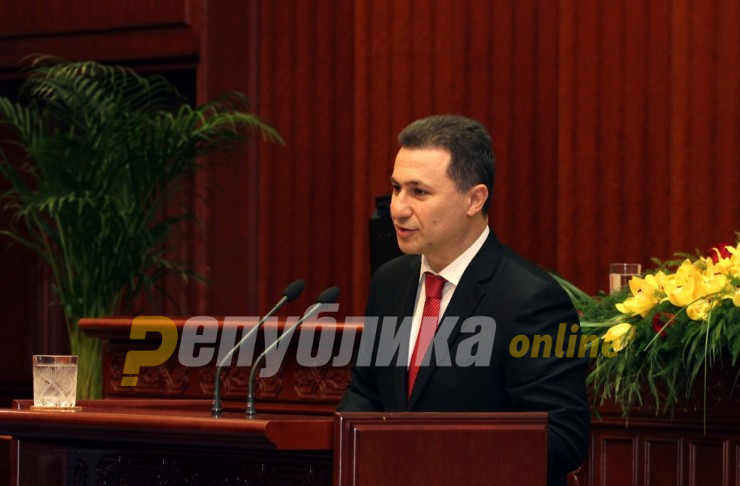Former Prime Minister and VMRO-DPMNE leader Nikola Gruevski denied the latest allegations raised against him by prosecutor Vilma Ruskoska, in which he is charged with the April 2017 incident in the Parliament. Ruskoska is broadening the extensive trial which was already used to pressure VMRO officials and to blackmail at least three members of Parliament into voting for the imposed name change in exchange for amnesty. During the hearing today Ruskoska blamed Gruevski of fleeing from justice to Hungary, where he received political asylum, which sparked a fierce response from the former VMRO leader.
I never avoided facing the justice. To the last I attended every court hearing and all unbiased and close observers realized that the trials against me were staged, part of a political persecution, in which both the judges and the prosecutors were acting on political instructions. After all, the person who ordered this persecution was recently recorded on tape confirming this. Once all the trials ended and all legal options were exhausted, faced with this injustice and with the direct threats of lynching, I decided to leave the country and temporarily seek shelter from the onslaught of political persecution against me. Going to prison blameless, after a politically staged trial, while a liquidation plot is being prepared, is not the same as “facing justice” and refusing to accept that is not “fleeing from justice”, Gruevski responds to Ruskoska via his social media accounts.
He adds that the trials against him were based on unlawfully obtained audio recordings which even their main promoter Zoran Zaev has since acknowledged were not admissible in court. Gruevski says that the prosecutors never proved any financial abuses on his part before the court and that the full context of the audio tapes proves he did nothing wrong.
Even the person who had the audio materials recently acknowledged before the court that they were heavily modified and seriously compromised following his arrest. As for the current trial, I never ordered or instructed anybody to enter the Parliament or open its doors or use physical force. A Swedish court already found this case to be a popular uprising and not terrorism, as the prosecutor alleges, and also concluded that there are no pre-conditions to have a fair trial in Macedonia, where the political persecution is on-going. The court advised one of the participants in those events to seek political asylum in Sweden, while the courts of two other EU member states have political asylum to victims of such staged trials. That tells us all we need to know about the state of the undemocratic rule by terror in Macedonia, Gruevski responds to one of Zaev’s most eager prosecutors.




Comments are closed for this post.